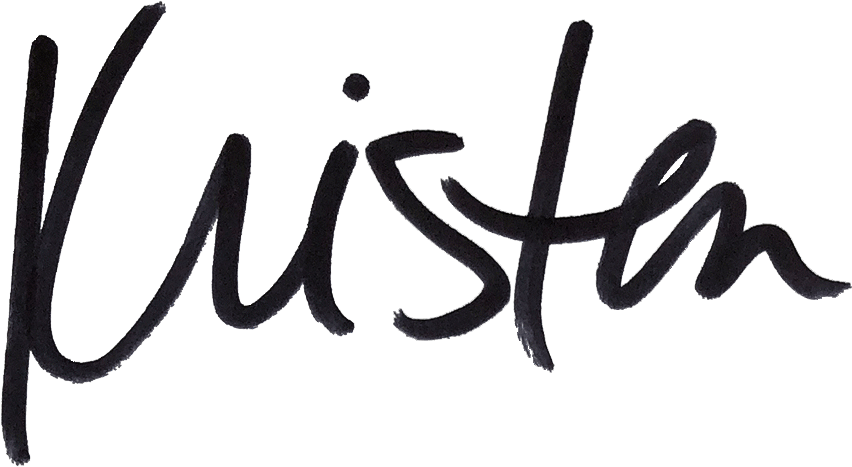Intimacy is vulnerable and counter-cultural, deeply intuitive and so, so risky. It’s being stamped out of our minds, hearts, and culture via pseudo-intimacy in social media, as well as through ads and marketing. Everything and every product everywhere seems to point to intimacy — our Starbucks will help our love life, our next meal will make us feel more connected as a family — while very little actually gives us what we seek.
As humans, we are allegedly more connected than ever, but that connection is often whittled down to photos of sandwiches and cute dogs and hating the same political candidates, not about noticing the tilt of our hearts toward the same distant moon.
That’s why today, I wanted to talk about intimacy that goes far beyond the sexual to encompass the deeply connected experience of humans being alive in tight emotional spaces. I argue that we can all use more intimacy in our lives.
What might that look like and what should we look out for? First, a poem. Then, the tangibles.
Intimacy looks like
walking into the middle of a room
and stripping to the bone —
knowing it is not entirely safe —
dancing,
and dancing,
and dancing anyway.
She is the particular frequency you cannot hear
by accident, only by
turning over stones and logs and hearts
for all your life and even then
Intimacy does not owe you anything,
least of all forever,
and makes herself known
in pockets of light.
Within, without, your heart is a goddamn meadow.
Intimacy allows for the give and take,
not only the one or the other,
and makes room for growth
even as she accepts everything you already
are, have been, will be.
Intimacy knows nothing
of systems and strategy,
only what works.
For you.
In this moment
and this reality.
Intimacy will shred you alive
and stand over you, barely breathing,
as she shows you how little is necessary
to truly live.
You don’t owe anyone scalability.
Current trends say I should take what I know and make a course, then sell that course to hundreds or thousands or hundreds of thousands of people to make what they call ‘passive income.’
I have an education degree, so this makes sense, right? Only breathing the same air together in a workshop or being on a 1-on-1 call can’t possibly be the same as trying to connect deeply with thousands of people who are paying you to teach them X. Even the thought of it is uncomfortable and strange.
I work with fewer than 50 people a year, and that’s exactly how I love my business most. It is most definitely not scalable, and that’s a big part of what I love about it.
Scalability is the opposite of intimacy.
When you choose intimacy, you are often choosing not to serve thousands or hundreds of thousands of people, but a select few. You are also free to trade time for money via editing or massaging or writing or coaching or personal training, if that’s the model you prefer. It’s not wrong to work with people one at a time. Again, this is countercultural at the moment. It’s all about launching, scaling, and rolling back to collect cash in your pajamas. But you don’t have to do it that way.
Further, you don’t have to hire a team, take on an intern, or otherwise add people to your business if you don’t want to or if it doesn’t feel like the right time. Bigger is not necessarily better. We often understand this intellectually, but it has a way of creeping into our hearts and shifting our dreams.
‘Dream bigger’ often means ‘strip this of all intimacy in order to make more money,’ which causes those of us who value intimacy to balk.
If intimacy is one of your values, too, hopefully this puts language to why you can’t bring yourself to listen to one more white guru person telling you how easy it would be to sell endless seminars and downloads and trainings and courses. You don’t have to build passive income streams like soulless little pets who don’t require any care.
I have gone down that path and felt absolutely nothing. I’ve watched my bank account get bigger and bigger while feeling no more connected to myself, to my business, or to those buying from me. It was fucking awful, and I don’t recommend it.
You don’t have to monetize your joy.
Joy is deeply intimate. It is an experience you share with your soul, and that’s not something that always translates well to the limited confines of capitalism.
Sometimes, monetizing your joy makes perfect sense. You want to be a writer, so you find ways to get paid to write. But sometimes — and this has happened to me — one of the things you love most definitely doesn’t want to become an income stream.
That’s because you can’t always monetize your joy. Admitting when this is true allows a hobby to be a hobby and a job to be a job, which is a necessary and life-giving distinction. This also means that you don’t have to listen to those people telling you to make your hobby into a career ‘because you’re so good at it’ if doing so feels awful, even if it makes logical sense and you need the money.
Some people are really really good at writing and should absolutely become writers. Some people are really really good at writing and trying to do it for money will absolutely crush their creativity and kill their work.
To say it another way: joy is a precious resource. Monetizing that joy could very well ruin it for a little or a long while.
Only you can distinguish between what should and shouldn’t be monetized — and you can only do that by listening to the voices deepest within you. Which brings us to our third point!
Every project will tell you what it wants to be if you listen closely enough.
I know that sounds a little crazy, but we’re so far past a little crazy around here that I’m not hesitating to share that with you. Every project has its own agenda, and those agendas often have little to do with what you want or with what the dominant 6-figure, 7-module blueprint has to provide.
Even in writing, it’s clear to me that some musings want to be poems, some want to be podcasts, and some want to be letters. Others want to be private, to be written and then deleted, or to be stitched together into a book. Some want worksheets and some run screaming from worksheets. Some want to be shared and others want to be held close to the heart.
The upcoming Voice workshop has been difficult to pin down, even though it came to me in a spectacular flurry of notes. I lost those notes, then spent months trying to recall what was in them instead of simply asking how Voice wanted to BE in the world. The answer is, oddly enough, a bunch of experiences and one long, continuous Keynote presentation that I can jump out of and back into at a moment’s notice throughout the two days of teaching. Have I ever done that before? No. Is that exactly what Voice wants when I listen closely? Yup.
If you treat each project as a living entity, a la Liz Gilbert’s Big Magic, you’re much more likely to both love what you make and to keep on making it for a long time.
You might come up with something weird, or your whole workshop might demand to be one long, continuous Keynote presentation, or a film, or a series of questions, or a stand-up special with bits about everything you love. That’s good listening. (And that’s the work only you can do.)
To recap!
You can actively grow your intimacy with others through refusing scalability for scalability’s sake, intimacy with your self through careful consideration of monetizing joy, and intimacy with your own talents and projects through frequent communication with them.
All three will lead you to a more deeply fulfilled life and business. Promise.
If you’d like some questions to help you draw out intimacy in your business at the moment, here we go!
Where can you think smaller and more intimately about being in business?
Where have you fallen for the step-by-step, bigger-is-better-so-let’s-scale-this-shit methodology?
Where can you refuse to monetize your joy or to go against your inner wisdom?
Which parts of your work don’t want to be monetized at the moment? Which absolutely do?
Which project can you bring into the world on its terms, or revise to be closer to what it would like in this moment?
Which project is very clear about what it wants, but you’ve been ignoring it because it’s too weird?
I hope those questions take you to rad, previously unknown places within yourself. If you’ve enjoyed the podcast, please leave a tip! ($5 is a great way to say, ‘Hey thanks for doing this week after week for years on end!’)
P.S. Joy is an act of resistance. And it doesn’t count if you don’t enjoy it.




